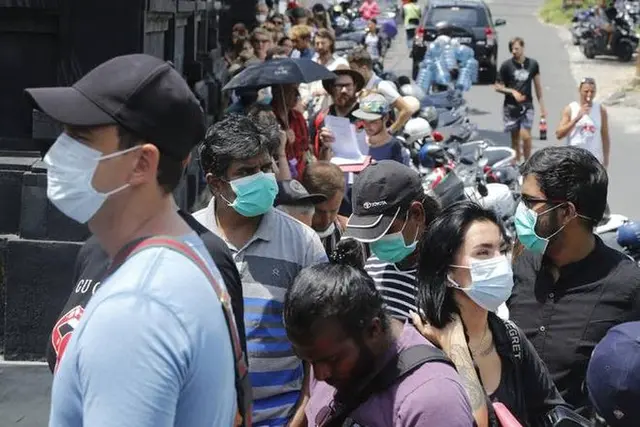By APD writer Alice
In Asia, a series of flights were canceled and many countries closed their borders to fight COVID-19, leaving thousands unable to return home.
From the sunlit beaches of Thailand to the foothills of Mount Everest in Nepal, travelers across Asia are seeking to return home but are helpless.
Ksenia Vostriakova and her friends are scheduled to return to Moscow, Russia, on a Singapore Airlines flight from Thailand on April 3. However, the flight was canceled. They immediately booked a flight of Qatar Airways on April 6 with the hope of no change.
"Right now we are afraid the Qatar Airways flight might be canceled as well. Everything changes constantly," Vostriakova said. We may have to stay in Thailand even though the group's visas will expire in mid-April.
The Thai government declared a state of emergency on March 26 to handle the crises caused by COVID-19. The nation, which welcomes the most international arrivals in Asia, has declared a national knockdown, nearly not allowing all foreigners to enter.
Its national flag carrier Thai Airways has suspended all flights. That is also the way many countries in the region and around the world are doing. The Airports Council International (ACI) Asia-Pacific said on March 27 that the air traffic of the 12 major airports in the region dropped by more than 80% in the second week of March, compared to the same period last year.
Spring is the peak of tourism season in Nepal as thousands of tourists from all over the world come to explore this land. But this year, the Nepal Tourism Board estimated that 10,000 foreign tourists were stranded when the government halted all flights and blocked all roads to prevent COVID-19 from spreading. Businesses and government offices are also closed.
At Lukla airport, the only gateway to Everest, more than 200 tourists are trapped, according to Dhurba Shrestha, an airport official. Even if the highway is open, it takes them three days to get down the mountain. Nepalese authorities are trying to arrange special flights to bring tourists out of this place to the capital of Kathmandu.
The German government on March 27 chartered a flight of Qatar Airways to bring 305 people, mostly German citizens, back home. But not everyone is lucky like that. In Kathmandu, people still see many foreign tourists wandering on deserted streets. Very few restaurants and hotels are open. Locals are not allowed to go out, but visitors can still.
"We planned to leave Nepal on March 21 but still have to stay here and wait for the embassy to arrange a flight to bring us home," said Lee Kuan, a tourist from Malaysia.
Meanwhile, Sri Lanka has stated it is willing to help about 18,000 visitors return home with scheduled or charter flights if necessary. Sri Lanka is also implementing a curfew order for at least two weeks.
In Indonesia, more than 2,500 foreign tourists are stranded in Bali, the world-famous tourist island. Visitors are allowed to extend their visas automatically, instead of waiting in a long queue at the immigration office. "This is good news for us," said Ruben Evert Ernst, a German tourist. He said his visa will expire in a few days.
However, many tourists in Thailand were not lucky. Hundreds of people seeking to extend their visas on March 27 raised concerns that there was not enough safe distance to prevent the spread of the virus.
About 500,000 foreign visitors in Thailand may overstay their visas when they cannot return to their home countries, as European countries’ blockades to prevent COVID-19.
Most of them are elderly tourists from Germany, Italy and Russia. They arrived in Thailand before COVID-19 attacked their homeland and decided not to return home. They were afraid of not receiving adequate health care in their home countries, said Thai Tourism and Sports Minister Phiphat Ratchakitprakarn.
Phiphat said he would discuss with the Ministry of Interior and Immigration on this issue to find a solution for stranded visitors overstaying their visas. Maybe they will have their visas extended and not be put on the blacklist. By law, if their visas are overdue, foreigners will be fined or deported, and not be allowed to enter Thailand again.
Travelers stuck in Thailand can enjoy the beaches in Phuket as they are still open. Russian tourist Vitaliy Kurikov has been playing with his son on the sand of the Bang Tao beach for many days to forget the time they are stranded here.
"If they close the beach, I really don't know what to do," he said.
(ASIA PACIFIC DAILY)
 简体中文
简体中文







